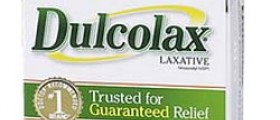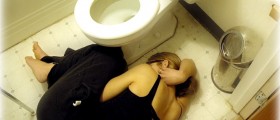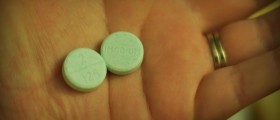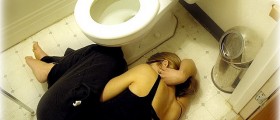
Diarrhea is a medical term which defines the passage of watery or loose stools. Diarrhea is a completely normal thing and it affects any child at some point in life. It cannot be considered as a disease, it is more of a symptom of some illness or disorder.
Diarrhea and dehydration
Diarrhea is in most cases almost harmless, but it may still be associated with dehydration. Dehydration is harmful because it alters the natural balance of water and electrolytes. For those who do not known electrolytes include chloride, potassium and sodium. If left untreated, dehydration may be very serious and potentially life threatening.
Bowel movements by age
The age and dietary habits of a child are the most common variables which influence the frequency and consistency of bowel movements. Young infants have numerous bowel movements per day, and the dietary habits usually define their number during the day. As the child grows older, he or she usually has no more than two bowel movements per day. Diarrhea may include increased number of bowel movements per day. It is also a widely known fact that the color and consistency of the child’s stool changes as the child grows older. If there is a presence of blood in the stool of a child, immediate medical attention needs to be sought. Acute diarrhea does not last longer than a week. Chronic cases of diarrhea may last for four weeks and sometimes even longer.
Causes
There are numerous different types of factors and causes which may trigger the onset of diarrhea. Certain types of antibiotic medicaments may be held responsible for diarrhea. This type of diarrhea usually resolves on its own once the course of medicaments is over. Various types of parasitic infections may also be involved with diarrhea. Parasitic infections are commonly triggered by contaminated water or contaminated foods. Viral infections are among the most common causes of both acute and chronic cases of diarrhea. Viral causes of diarrhea cannot be treated with any treatment methods. The most common causes of all causes of diarrhea are different sorts of bacterial infections. Bacterial infections may be associated with blood in the stool and sometimes even high fever.
Treatment
It is very important to ingest plenty of fluids in order to replace all the water and electrolytes which are lost due to dehydration. Food items which are recommended for all those who suffer from diarrhea include vegetables, fruits, yogurt, lean meats, bread, potatoes, wheat and rice. Bananas and applesauce are highly recommended. Oral rehydration therapy may be required in some cases.


_f_280x120.jpg)














Your thoughts on this
Loading...